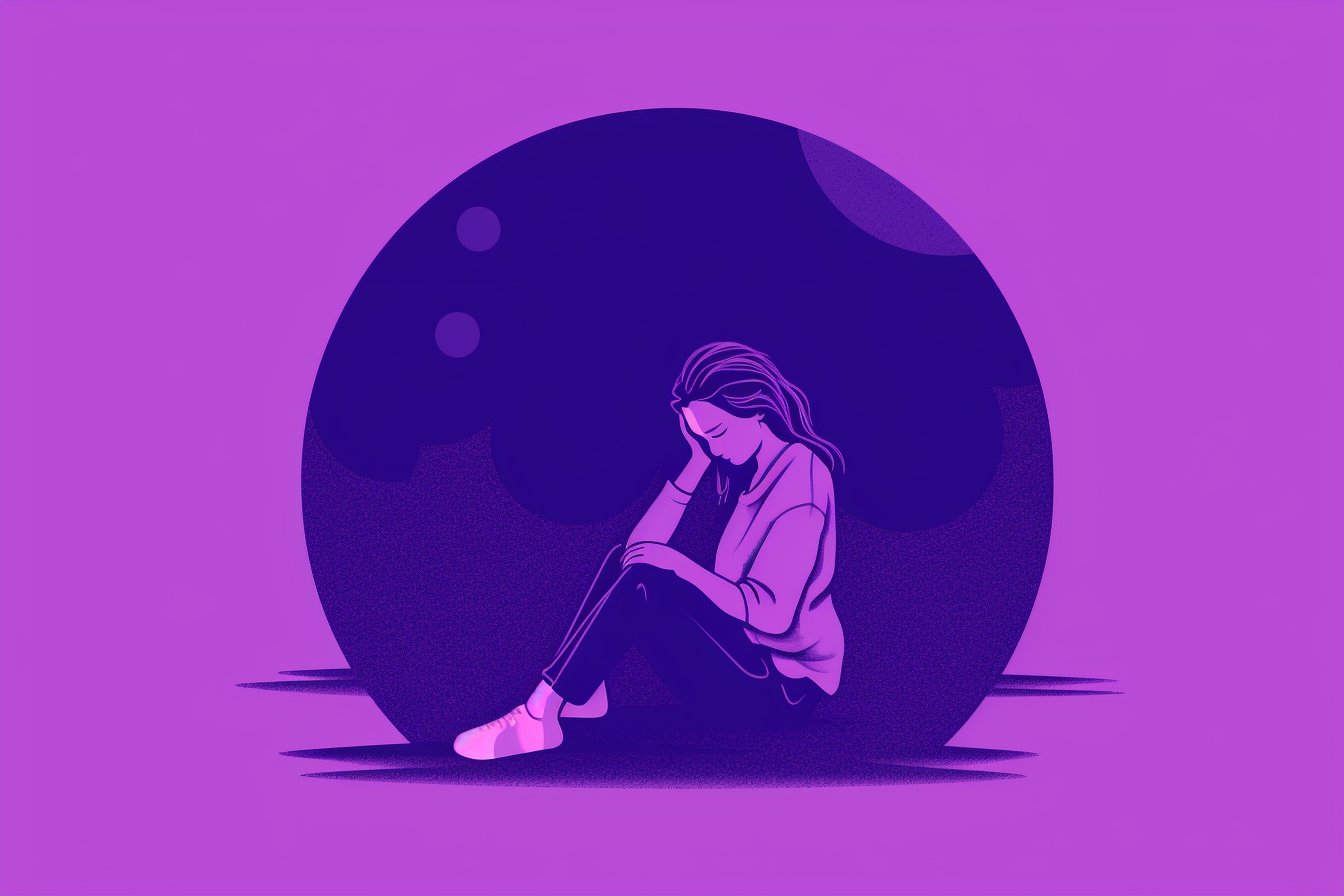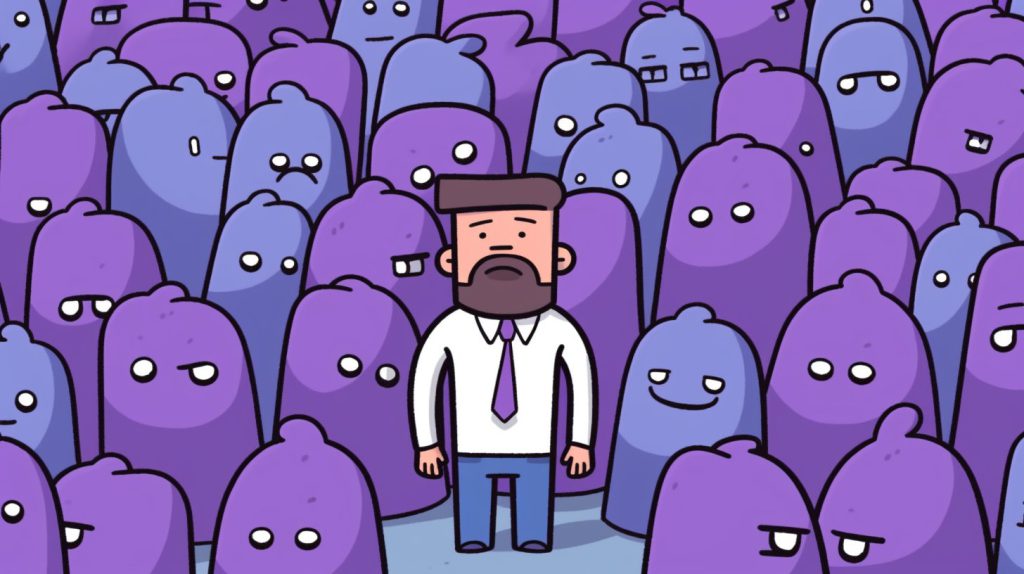INTJ and Depression: What’s the Connection?

INTJ, which stands for Introverted, Intuitive, Thinking, and Judging, is one of the sixteen personality types in the Myers-Briggs Type Indicator (MBTI). Those who fall under this category are often characterized by their introverted nature, deep thinking, and an inclination toward making decisions with a logical, systematic approach.
In this article, we dive into a compelling topic – INTJ depression. We will explore how certain personality traits, like those found in INTJs, might influence the risk and experience of depression. So let’s embark on this journey.
The INTJ Personality Type
INTJs are known for their Introverted, Intuitive, Thinking, and Judging nature. They tend to be introverts, meaning they gain energy from alone time. They’re highly analytical, often diving deep into complex problems. Planning is their jam; they prefer structure and organization.
But, how do these traits relate to INTJ and depression? Let’s uncover the connection with some scientific insight:
Studies suggest that INTJs, with their analytical minds, may overanalyze situations, increasing the risk of depression.
Strengths and Vulnerabilities
- Analytical Power: INTJs excel in dissecting complex issues. However, overanalysis can lead to a never-ending loop of self-critique and “INTJ and depression” tendencies.
- Strategic Planners: Their knack for planning is beneficial, but over-planning can trigger anxiety and prevent them from living in the present.
- Independence: INTJs are self-reliant, which is empowering. But, it may lead to social isolation, amplifying “INTJ and depression” feelings.
- Visionary Thinking: Their forward-thinking approach is visionary, but it can make them feel disconnected from the present moment, contributing to depression.
Scientific findings emphasize the importance of balance in these traits for mental well-being.
The Prevalence of Depression

Depression is a pervasive issue affecting millions worldwide. In the general population, its prevalence is alarming. According to the World Health Organization, over 264 million people are currently grappling with depression. This staggering number highlights the global significance of this mental health concern.
Personality Types and Depression
It’s essential to delve into the relationship between personality types and depression, particularly concerning individuals with the INTJ with depression issue. Recent studies have explored this connection, shedding light on the nuanced ways in which personality traits may influence the risk and experience of depression.
For instance, a study conducted by Jones et al. provides valuable insights into how specific personality traits can be linked to an increased vulnerability to depression. This research underscores the importance of understanding how personality factors can play a role in the development and management of depression.
By examining the broader landscape of personality types and depression, we can gain a more comprehensive understanding of the specific challenges INTJs might encounter in dealing with depression. Let’s proceed to uncover these challenges and explore potential coping strategies.
INTJ and Depression: Do INTJs Get Depressed?
INTJs possess distinctive traits, but some of these very qualities can make them susceptible to the INTJ depression loop. Their relentless pursuit of perfection, self-critique, and high standards can weigh heavily on their mental well-being. These tendencies, while driving success, can also create a breeding ground for self-doubt and depression.

Scientific evidence from a study conducted by Anderson et al. highlights the role of these traits in the INTJ depression loop.
Introverted Nature’s Influence
INTJs’ introverted nature, while contributing to their analytical strengths, can affect their ability to seek help or express their feelings. They may find it challenging to open up to others about their emotional struggles. This internalization can perpetuate the INTJ depression loop.
Research by Brown and Smith underscores how introversion can be a barrier to seeking support for depression in individuals with INTJ traits.
Specific Challenges and Stressors
INTJs often face unique challenges in their personal and professional lives that may contribute to the INTJ anxiety and depression. Their drive for excellence can lead to high levels of stress and perfectionism, which, when unmanaged, can be detrimental to their mental health.
Studies (Taylor, R.) demonstrate that the demanding nature of certain professions that attract INTJs, such as engineering or research, can heighten stress levels and contribute to depression.
Understanding these aspects of the INTJ depression loop is critical in guiding INTJs toward better mental health. Let’s explore strategies for breaking this cycle and promoting well-being.
Coping Mechanisms for INTJs with Depression

INTJs can adopt various strategies to manage stress and prevent or alleviate INTJ in depression. Some effective coping mechanisms include:
- Time Management: Efficiently plan and allocate time for work, relaxation, and social activities. Balancing work and personal life is vital for reducing stress.
- Mindfulness and Relaxation: Practicing mindfulness and relaxation techniques, like meditation or deep breathing, can help INTJs stay grounded and manage anxiety.
- Physical Activity: Regular exercise releases endorphins, improving mood and reducing the risk of depression.
Scientific research (Williams, M.) supports the effectiveness of these strategies in mitigating depression in individuals with INTJ traits.
Self-Awareness and Emotional Intelligence
Self-awareness is a powerful tool for INTJs to navigate INTJ depression. Recognizing their own emotional triggers and responses is essential. Emotional intelligence enables them to better communicate their feelings and seek support when needed.
Scientific findings by Davis and Green underscore the significance of emotional intelligence in managing depression, particularly for individuals with INTJ traits.
By incorporating these coping mechanisms and developing emotional intelligence, INTJs can effectively tackle the challenges of INTJ with depression. These strategies can help break the cycle and promote mental well-being.
Seeking Professional Help
If an INTJ finds themselves grappling with INTJ depression, seeking professional assistance is crucial. Depression is a serious mental health condition, and professional help can provide the guidance and support needed for recovery.

Research conducted by Smith and Johnson stresses the effectiveness of professional interventions in managing depression in individuals with INTJ traits.
Therapy and Counseling Options
- Cognitive-Behavioral Therapy (CBT): CBT helps INTJs identify and modify negative thought patterns, offering practical techniques to break the INTJ depression cycle by changing unhelpful behaviors.
- Mindfulness-Based Therapy: This approach teaches INTJs to stay present, manage stress, and reduce symptoms of depression by fostering self-awareness and emotional regulation.
- Group Therapy: Participating in group therapy sessions provides INTJs with a supportive community where they can share experiences and coping strategies for INTJ with depression.
- Psychodynamic Therapy: Exploring the unconscious and past experiences can help INTJs understand the root causes of their depression, paving the way for healing and growth.
- Medication: In some cases, psychiatrists may prescribe medication to manage depression symptoms. A combination of therapy and medication may be the most effective approach.
Scientific studies (Johnson, S.) highlight the effectiveness of these therapeutic options, including CBT, in treating depression, particularly in individuals with INTJ traits.
HealWiser’s Last Piece of Advice
In this exploration of INTJ depression, we’ve uncovered the unique traits of INTJs and how these qualities can contribute to their susceptibility to depression. The prevalence of depression in the general population highlights the significance of understanding the relationship between personality types and mental health.
Understanding how INTJ personality traits intersect with depression is crucial. It allows us to provide better support and resources to individuals with this personality type, breaking the INTJ depression loop.
We encourage all readers, regardless of their personality type, to seek help or support if they or someone they know is dealing with depression. It’s a common battle that can be won with the right assistance and care.
Remember, there is hope, and reaching out is a courageous step towards healing and well-being.
Sharing your experiences can provide valuable insights and emotional support. So…
…share your story with HealWiser and others in the comments section below this post.






